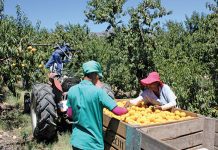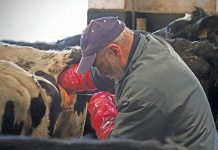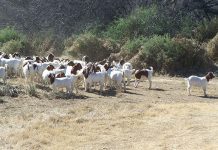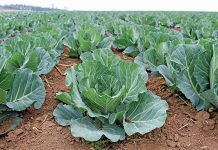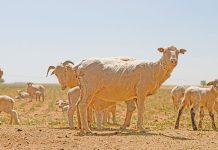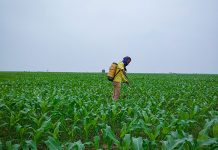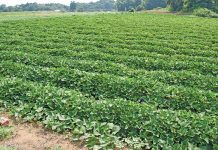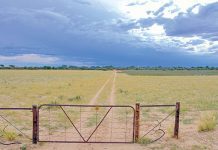Upskilling helps people and boosts profits
Improving workers’ skills is essential to increasing production efficiency and improving staff morale, and lies entirely with the farmer, who is ultimately the custodian of food production. Indeed, fulfilling this role responsibly requires ensuring that farmworkers undergo ongoing training, says Janine Ryan.
Veld fires: experts advise on treating livestock to mitigate loss
Dr Claudia Cardoso, lecturer in Ruminant Health and Production, and Dr Rhoda Leask, senior lecturer in Ruminant Health and Production, both of the Department of Production Animal Studies in the University of Pretoria’s Faculty of Veterinary Science, offer some advice on treating livestock affected by veld fires.
A step-by-step guide to the process of artificial insemination
There are many benefits to using artificial insemination of a commercial or stud herd or flock, but the process is complicated and requires knowledge and practice.
Livestock adaptability: what it is, and why it matters to a buyer
It’s always best to buy sheep, goats or cattle that come from a similar environment to that of your own farm. If they are used to very different conditions, they could struggle and may even die, says Shane Brody.
Have you considered these farming risks?
Farmers face the most serious risks experienced in the total value chain of food production. In this first part of a new series, PJ Mommsen, a freelance strategist, looks at the less common of these risks.
How to plan a community food project
A well-organised garden project can supply a community with fresh fruit and vegetables at low prices, as well as provide jobs. The first step is to calculate how much you can grow and where to grow it, says Shane Brody.
How technology is making monitoring animal health easier
A large part of farming is keeping track of the condition and health of animals. Janine Ryan reports on the current apps available to make this process easier and more efficient for farmers.
How to recognise stress – and manage it
Stress can have a serious effect on your health, which is why it’s so important to address the problem sooner rather than later. Fortunately, there are well-established strategies for this, writes Roelof Bezuidenhout.
Using nematodes for biological control of crop pests
Mankaba Matshidiso Whitney Matli, an agricultural economist part of the Agricultural Research Council Professional Development Programme, discusses the importance of biological control to decrease the damage caused by various crop pests without harming the environment.
The importance of good business and operations plans
Without efficient planning, you won’t know when to expect your first income. A good business plan is a prerequisite for success. It’s also essential for obtaining funding, says Shane Brody.
Why some family members avoid succession planning
To understand why the members of a family business might be reluctant to initiate succession planning, it’s important to consider the family’s life stage at the time of succession, writes Trevor Dickinson.
Farm attacks: Security expert outlines a proactive plan
Laurence Palmer, an independent security consultant, outlines practical steps that South African farmers and farmworkers can take to avoid becoming victims of farm attacks, and to protect themselves if attacked.

